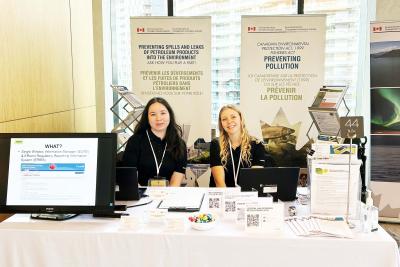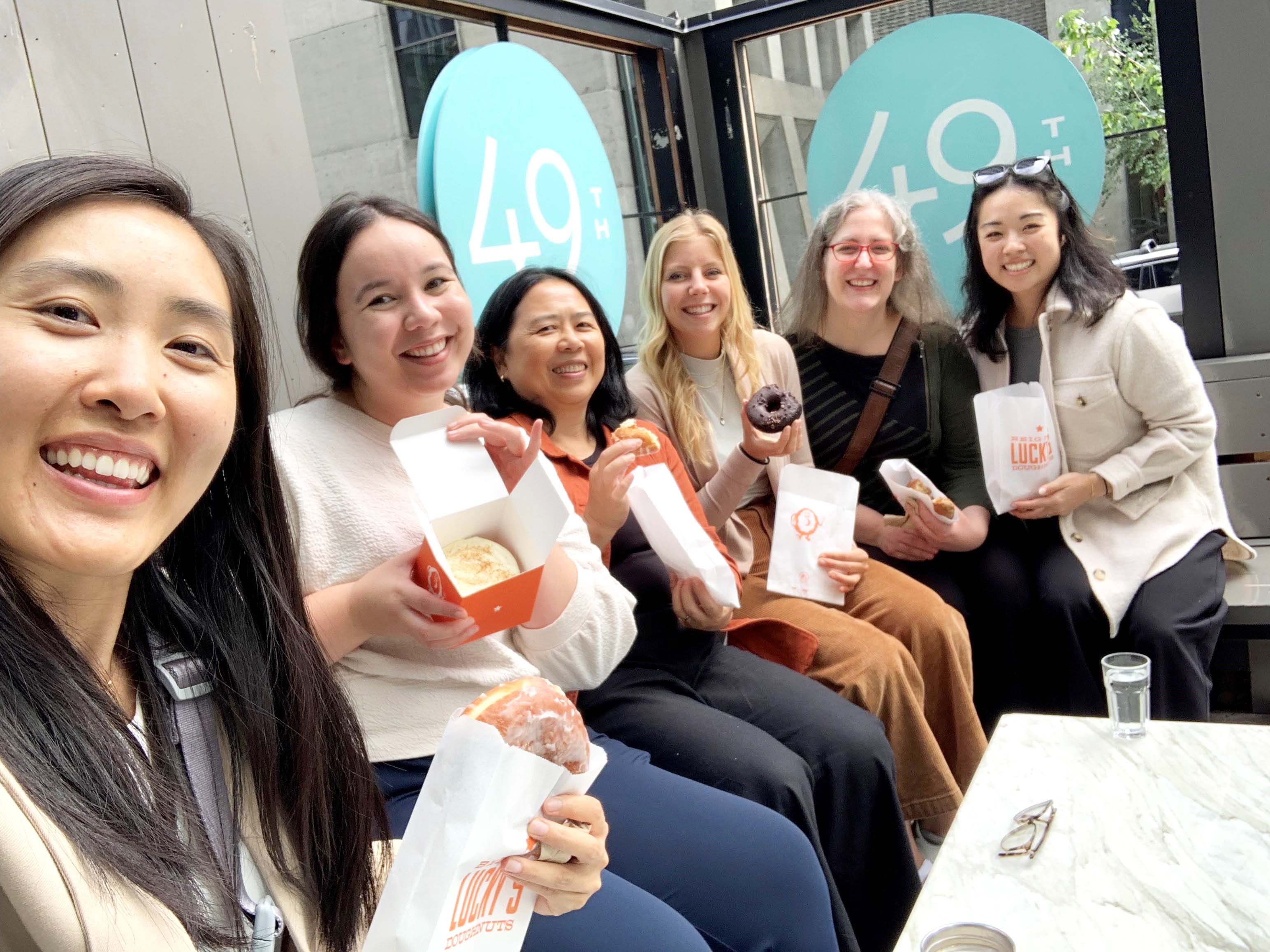Featured Student: Miranda Clark
October 22, 2024

October 22, 2024

I'm currently completing a degree in Environmental Science, with a specialization in sustainability. I will graduate in December 2025.
As Environmental Science is such a broad field, I wanted to better understand which industries and working environments would allow me to make the most significant contributions to limiting the impacts of climate change and environmental degradation.
I held two eight-month co-op positions with Environment and Climate Change Canada (ECCC) during my Co-op. First, I worked in the compliance promotion program and secondly in the clean transportation directorate, specialized in marine transportation.
ECCC's Compliance Promotion Program strives to ensure industries are complying with environmental regulations. Specifically, we perform outreach to increase regulated communities awareness of regulations and their requirements, so we can strengthen environmental protection in Canada.
With my compliance promotion Co-op role, I frequently prepared and sent out campaigns which often included fact sheets or other informative resources to remind large groups of stakeholders of their regulatory requirements. I also prepared a large performance indicator project to analyze the impact of different types of engagement on regulatory compliance.
In my policy and research analyst role with the clean marine transportation team, I've worked on various research reports to help decarbonize marine transportation in Canada. For these projects, I've written sections of reports and literature reviews as well as conducted research and statistical analysis of environmental or technical solutions for marine transportation climate initiatives.
I've really enjoyed the entirety of both of my Co-ops so far.
I think that one of my favourite experiences was preparing the performance indicator project in my compliance promotion role, as this allowed me to use some of my academic research skills in a real world scenario and I could see that the results would be impactful on the work of Environment and Climate Change Canada.
One of my biggest achievements was receiving an award from my regional director for my volunteer efforts with the wellness and green team of ECCC.
I was very involved in organizing events and improving the community in my department and the award recognized these efforts and going 'above and beyond' my Co-op student's duties.
While the recognition wasn't important, showing that my efforts were exceeding my job description made me proud at how hard I worked to succeed.
When I started my job in clean marine transportation, I was shocked by the academic nature of the role.
However, by drawing on my scientific knowledge, I successfully performed the necessary tasks. While initially this felt difficult, as it had been a while since I was in school, I worked hard, as well as reviewed assignments and notes, to best complete the tasks given to me.
Co-op helped me grown significantly as a person. I learned how to effectively prioritize tasks and develop professional relationships, with all sorts of people from different backgrounds with different skill sets.

It allowed me to scratch the surface of the environmental field.
I now understand far more about how the government works and which roles I could play within it to make significant impact to climate action.
I better understand some of the challenges involved in implementing large scale impacts and while this had led to feelings of frustration, I think that I can employ this knowledge to make a more meaningful contribution to change through my career.
I found the practice interviews, as well as reviews of my resume and cover letter were very helpful to securing my jobs.
I did a mock interview a couple days before my first interview (for my Environment and Climate Change Canada) role and Sanya's feedback set me up for success in the real interview.
I think taking the opportunity to do as many different Co-ops as you can is such a unique experience and incredibly valuable to kick start your career. I also recommend consistently taking initiative within your Co-op roles and ensuring you don't become complacent.
As a Co-op student, I think it's easy to simply do the work that you are given and complete it successfully. However, going above and beyond to learn new things and advocate for your career progression will make all the difference in the success of your Co-op.
I'm looking forward to jumping back into this field and beginning to make more of a difference in climate action.
I'm unsure if this will mean working at ECCC post graduation, or starting a masters in sustainable business in Europe, but I'm excited to see what happens.
My Co-ops made me far more eager to dive in, develop my skills and seek new opportunities.
We honour xwməθkwəy̓ əm (Musqueam) on whose ancestral, unceded territory UBC Vancouver is situated. UBC Science is committed to building meaningful relationships with Indigenous peoples so we can advance Reconciliation and ensure traditional ways of knowing enrich our teaching and research.
Learn more: Musqueam First Nation